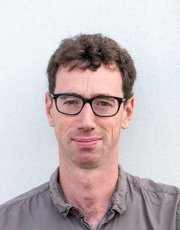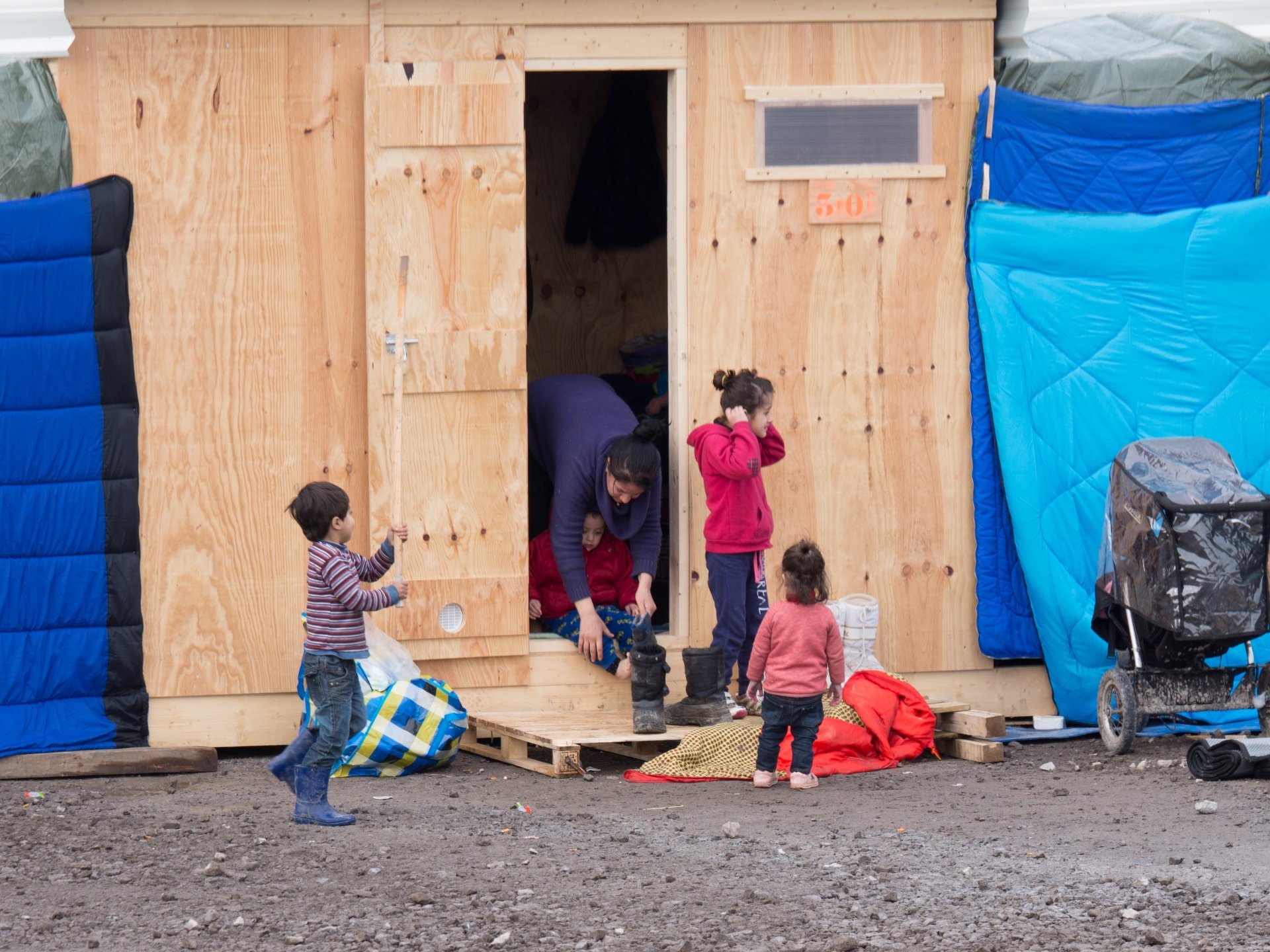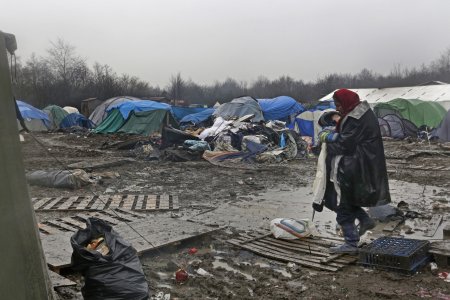
Sheltering, hosting or receiving refugees: the unresolved ambiguities of the La Linière refugee camp
Michaël Neuman & Franck Esnée
Following the dismantlement of the Basroch camp in Grande-Synthe and the resettlement of refugees in the new La Linière camp, in the spring 2016, Michaël Neuman and Franck Esnée wanted to focus their analysis and story on the “camp” – as an object –, its nature and management. This article was originally published in Alternatives Humanitaires #5, in July 2017.
On March 7th 2016, in the town of Grande-Synthe in the north of France, the La Linière camp was opened to nearly 1,300 migrants who had been living in a fetid undergrowth for a few weeks or months, less than four kilometers away. La Linière was initiated by Damien Carême – mayor of the town –, supported by Médecins Sans Frontières (MSF), responsible for building the camp. The project was designed in a hurry between December 2015 and March of 2016, in order to prevent people dying and improve living conditions in the former camp: located between the A16 motorway and the railway, the parcel was equipped with 368 9-square-meter wooden sheds designed for 4 people. Common spaces were created, and the mayor guaranteed freedom of movement to the migrants who came to live there. Initially intended to shelter the migrants throughout the winter, the camp was not opened until March. A year later, when it was destroyed by arson on April 10th 2017, more than 1,500 people still lived in it. Their projects for the future – mostly focused on the U.K. – had not changed. Their immediate environment, however, had been radically transformed: following the Calais camp’s dismantling between October and November 2016 – in which, according to some organisations, up to 10,000 people had lived together – and the similar fate of most of the region’s small camps, La Linière was left as the only gathering place allowed by the State for migrants.
With our first article, we had wanted to reflect on the mobilization and the different people’s rolesSee Angélique Muller and Michaël Neuman, “MSF in Grande-Synthe: lessons from an unlikely coalition of actors”, Humanitarian Alternatives, n° 3, November 2016, p. 42-51, http://alternatives-humanitaires.org/en/2016/11/22/msf-in-grande-synthe-lessons-from-an-unlikely-coalition-of-actors/ in making the building of this camp possible. This time, our analysis and story focus on the “camp” – as an object –, its nature and management.
To cite this content :
Michaël Neuman, Franck Esnée, “Sheltering, hosting or receiving refugees: the unresolved ambiguities of the La Linière refugee camp”, 5 juillet 2017, URL : https://msf-crash.org/en/camps-refugees-idps/sheltering-hosting-or-receiving-refugees-unresolved-ambiguities-la-liniere
If you would like to comment on this article, you can find us on social media or contact us here:
Contribute



